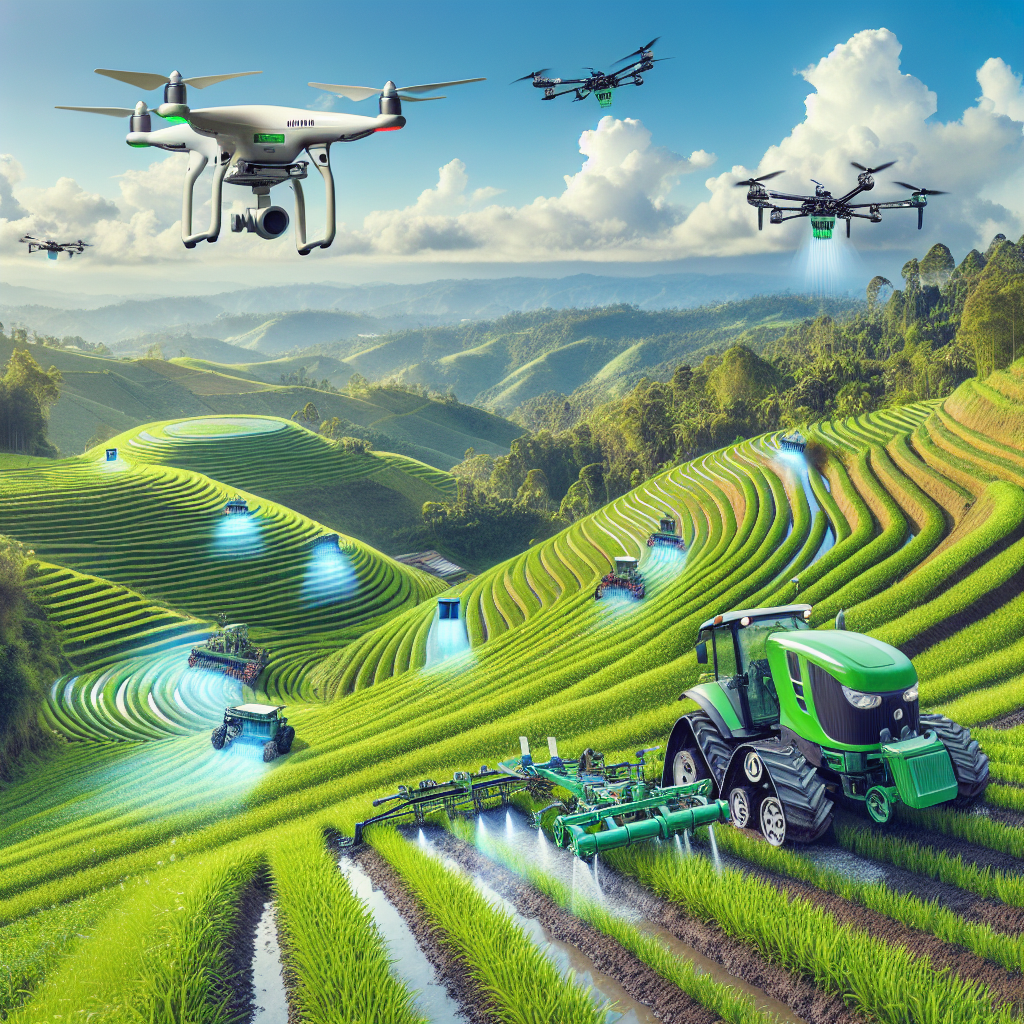In recent years, the agricultural industry has been undergoing a transformation with the integration of artificial intelligence (AI) driven solutions to improve sustainability practices. AI technologies have the potential to revolutionize farming by increasing efficiency, reducing waste, and enhancing productivity while minimizing environmental impact. In this article, we will explore how AI-driven solutions are being used in sustainable agriculture practices and the benefits they bring to the industry.
AI-driven solutions in agriculture involve the use of machine learning algorithms, data analytics, and robotics to optimize various aspects of farming operations. These technologies can help farmers make informed decisions, monitor crop health, predict weather patterns, and manage resources more effectively. By leveraging AI, farmers can improve crop yields, reduce water usage, minimize chemical inputs, and mitigate the impacts of climate change on their crops.
One of the key applications of AI in sustainable agriculture is precision farming. Precision farming involves using sensors, drones, and satellite imagery to collect data on soil conditions, crop health, and weather patterns. This data is then analyzed using AI algorithms to generate insights and recommendations for farmers. For example, AI can help farmers determine the optimal planting time, identify areas of the field that require additional irrigation or fertilization, and detect early signs of pest infestations or diseases.
Another important application of AI in sustainable agriculture is smart irrigation systems. These systems use AI algorithms to analyze data from soil moisture sensors, weather forecasts, and crop water requirements to optimize irrigation schedules. By delivering the right amount of water at the right time, farmers can reduce water waste, improve crop yields, and save on energy costs. Smart irrigation systems can also help mitigate the impacts of droughts and water scarcity on agriculture.
AI-driven solutions are also being used to improve pest and disease management in agriculture. By analyzing data from sensors, cameras, and satellite imagery, AI algorithms can detect early signs of pest infestations or diseases and provide real-time recommendations for treatment. This proactive approach to pest and disease management can help farmers reduce the use of chemical pesticides, minimize crop losses, and protect the environment.
In addition to precision farming, smart irrigation, and pest management, AI-driven solutions are also being utilized in crop monitoring and predictive analytics. By analyzing historical data on crop performance, weather patterns, and market trends, AI algorithms can forecast crop yields, optimize harvest schedules, and maximize profitability for farmers. These insights can help farmers make more informed decisions, reduce risks, and adapt to changing market conditions.
Overall, AI-driven solutions have the potential to transform the agricultural industry by making farming more sustainable, efficient, and profitable. By harnessing the power of AI technologies, farmers can improve productivity, reduce costs, and minimize environmental impact. As the demand for food continues to grow, it is crucial for the agricultural industry to adopt innovative solutions that can ensure food security while preserving natural resources for future generations.
Frequently Asked Questions (FAQs):
Q: How can AI help farmers reduce water usage in agriculture?
A: AI-driven solutions such as smart irrigation systems can analyze data on soil moisture, weather forecasts, and crop water requirements to optimize irrigation schedules and reduce water waste.
Q: How does AI support pest and disease management in agriculture?
A: AI algorithms can analyze data from sensors, cameras, and satellite imagery to detect early signs of pest infestations or diseases and provide real-time recommendations for treatment, reducing the use of chemical pesticides and minimizing crop losses.
Q: What are the benefits of using AI in precision farming?
A: AI can help farmers make informed decisions on planting times, irrigation, fertilization, and pest management by analyzing data from sensors, drones, and satellite imagery, improving crop yields, reducing waste, and minimizing environmental impact.
Q: How can AI-driven solutions improve crop monitoring and predictive analytics?
A: By analyzing historical data on crop performance, weather patterns, and market trends, AI algorithms can forecast crop yields, optimize harvest schedules, and maximize profitability for farmers, enabling them to make more informed decisions and adapt to changing market conditions.

